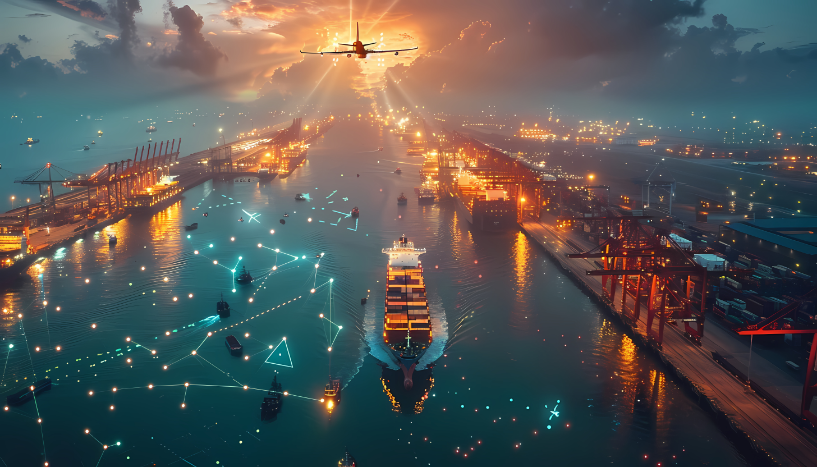Maritime technologies have come a long way since the days of simple wooden ships powered by sails. Today, the industry is navigating through an intricate web of innovations that have revolutionized everything from vessel construction to advanced navigation and sustainability efforts. In this article, we’ll explore the complex world of maritime technologies, highlighting key developments, challenges, and future prospects that are shaping the seas of tomorrow.
Understanding the Importance of Maritime Technology
Maritime technology plays a pivotal role in global trade, military operations, and environmental management. Without it, the transportation of goods across oceans, the exploration of marine resources, and the protection of our coastlines would be far less efficient and safe. But to truly appreciate modern maritime technologies, we need to understand their evolution and the drivers behind these innovations.
Evolution of Maritime Technologies Over the Centuries
The maritime industry has a rich history dating back thousands of years, from the first seafaring vessels in ancient civilizations to the mighty ships of the 19th century industrial era. Today, maritime technologies have evolved to integrate digital tools, artificial intelligence (AI), and eco-friendly innovations that minimize environmental impacts.
Key Drivers Behind Modern Maritime Innovation
One of the main drivers behind these advancements is the global need for faster, safer, and more efficient maritime operations. Increased environmental regulations and the push for sustainability have also spurred the development of green technologies that reduce fuel consumption and emissions.
The Different Segments of Maritime Technologies
The term “maritime technologies” covers a vast range of subfields, each critical to the industry. Let’s break down some of the most prominent segments.
Vessel Engineering and Design
At the core of maritime innovation is vessel engineering. Modern ships are built with advanced materials and design techniques that enhance performance and reduce costs.
Advances in Shipbuilding Materials
New materials, such as lightweight composites and corrosion-resistant alloys, have replaced traditional materials like steel, leading to more durable and energy-efficient vessels. These advances allow ships to carry larger loads while consuming less fuel.
Hydrodynamic Efficiency in Vessel Design
Designing ships that move through water more efficiently has been a key area of innovation. Hydrodynamic designs optimize a vessel’s interaction with water, reducing drag and improving fuel efficiency.
Maritime Navigation Systems
Navigating the world’s oceans requires pinpoint accuracy, which has led to significant improvements in maritime navigation systems.
From Compasses to GPS and Beyond
Long gone are the days when sailors relied solely on the stars and compasses. Today, Global Positioning Systems (GPS) and other satellite technologies provide real-time positioning, making sea travel far more accurate.
Autonomous Navigation Systems
The future of navigation is autonomous. These systems use sensors, AI, and machine learning to allow ships to navigate themselves with minimal human intervention, promising safer and more efficient journeys.
Marine Energy and Sustainability
As the world pushes for greener energy, the maritime sector has started to adopt renewable energy technologies.
Ocean Energy Technologies
Technologies like tidal and wave energy converters are being explored to generate power from the ocean itself. These renewable sources offer potential for reducing the industry’s reliance on fossil fuels.
Green Ship Technology and Environmental Impact
Green technologies are increasingly being integrated into ship design. This includes engines that run on alternative fuels such as liquefied natural gas (LNG) and the use of energy-saving devices like wind-assist systems.
Port and Cargo Handling Technologies
Ports are the lifeblood of maritime trade, and advancements in port technology are critical to ensuring efficient cargo handling.
Automation in Port Management
Automation in ports is becoming more widespread. Smart systems that control everything from ship docking to cargo movement allow ports to operate around the clock with minimal human input.
Advanced Container Handling Systems
New technologies, such as automated cranes and container transport systems, have significantly increased the speed and efficiency of cargo handling, reducing bottlenecks and improving overall productivity.
Emerging Trends in Maritime Technologies
As the maritime industry continues to evolve, new technologies are emerging that could redefine how we manage maritime operations.
AI and Machine Learning in Maritime Operations
AI is transforming how ships operate by optimizing fuel consumption, predicting maintenance needs, and even automating tasks previously handled by crew members.
Blockchain for Secure Maritime Trade
Blockchain technology offers a secure way to handle maritime transactions. By providing a tamper-proof record of goods and documents, blockchain reduces fraud and improves transparency in global shipping.
Remote and Autonomous Vessels
One of the most exciting advancements is the development of fully autonomous vessels. These ships can operate without a crew, controlled remotely or via AI, which could revolutionize the shipping industry.
Challenges Facing Maritime Technologies
Despite the incredible advancements in maritime technologies, the industry still faces several challenges that must be addressed.
Environmental Regulations and Compliance
The maritime industry is under increasing pressure to comply with environmental regulations aimed at reducing emissions and protecting marine life. Meeting these stringent standards requires continuous innovation in green technologies.
Cybersecurity Concerns in the Maritime Industry
As maritime technologies become more digitized, they also become more vulnerable to cyberattacks. Ensuring the cybersecurity of ships and port systems is critical to preventing disruptions and maintaining the safety of global trade.
Future Prospects of Maritime Technologies
The future of maritime technology looks promising, with several exciting developments on the horizon.
Integration with Smart Cities and Ports
Smart ports, integrated with the infrastructure of smart cities, will use real-time data to optimize maritime operations, improve traffic management, and enhance cargo handling efficiency.
The Role of 5G in Maritime Communication
5G technology is expected to revolutionize maritime communication, providing faster and more reliable data transfer between ships and ports, improving everything from navigation to cargo management.
Conclusion: The Impact of Complex Maritime Technologies on the Industry
Maritime technologies have come a long way, transforming not only how ships are built and operated but also how they impact the environment and global trade. With new developments in AI, renewable energy, and automation, the future of maritime technology looks both exciting and sustainable. However, challenges such as cybersecurity and environmental compliance remain, driving the industry to continually innovate.
FAQs
- What are the most important developments in maritime technology?
Some of the key developments include autonomous ships, AI-driven systems, and green energy technologies such as tidal power. - How do maritime technologies contribute to environmental sustainability?
By incorporating green ship technologies, alternative fuels, and renewable energy sources, the industry is reducing its environmental impact. - What is the role of AI in maritime operations?
AI optimizes various processes, including navigation, fuel consumption, and maintenance, leading to safer and more efficient operations. - What challenges does the maritime industry face with cybersecurity?
As ships and ports become more digitized, they are increasingly vulnerable to cyberattacks, making cybersecurity a top concern. - How do autonomous ships work, and are they safe?
Autonomous ships use AI, sensors, and remote control systems to navigate without human intervention. While still in development, they are designed to improve safety by reducing human error.




